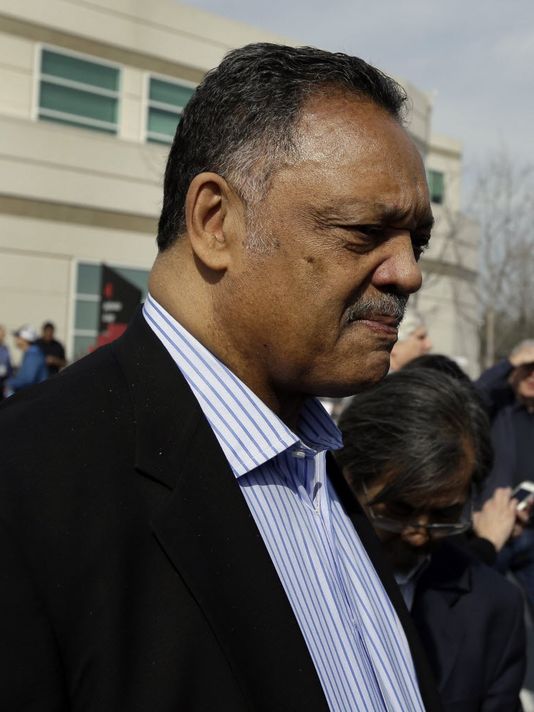
23 May EEOC to hold rare public hearing on tech diversity
“The EEOC must take a hard look to determine if discrimination is at play in the tech industry and to vigorously enforce the law,” says Rev. Jesse Jackson, the civil rights activist who has pressed the federal agency to investigate the lack of diversity in the industry.
SAN FRANCISCO — The federal government’s anti-discrimination watchdog is scrutinizing the employment practices of the mostly white and Asian male technology industry.
The Equal Employment Opportunity Commission on Wednesday plans to hold a rare public hearing that puts the national spotlight on a hot-button issue roiling Silicon Valley: the chronic underrepresentation of women, minorities and older workers, particularly in technical roles.
“This commission meeting focused on a particular industry in the private sector is unprecedented,” said employment attorney Barry Hartstein, co-chairman of law firm Littler’s EEO and diversity practice.
Observers say the public hearing points to growing interest inside the agency in the industry’s demographic disparities. It will examine “innovative practices” to address the lack of diversity in the fast-growing sector and agency staffers will present the findings of a report they prepared on the lopsided demographics of the tech industry.
“It is unclear what the outcome will be based on this session, but it is a clear signal that greater attention by that agency will be placed on employers in the technology industry,” Hartstein said.
The EEOC, which is charged with fighting systemic workplace discrimination, is jumping into the fray amid growing pressure from civil rights activists who have for years prodded the tech industry to hire more women and minorities and foster more inclusive corporate cultures.
The industry used to shrink from any talk of diversity, keeping critics at bay and workforce demographics under lock and key, until 2014 when Google publicly addressed the gender and racial imbalance in its workforce and the tech industry at large for the first time.
At Google, seven out of 10 employees are men. Most employees are white (60%) and Asian (31%). Latinos make up 3% of the work force, African Americans 2% — laying bare statistics common to major tech companies that the industry admits are too low and that fall below other industry averages.
Tech companies say their attempts to hire and retain women and minorities have been stymied by a “pipeline” problem. Yet top universities turn out African-American and Latino computer science and computer engineering graduates at twice the rate that leading technology companies hire them, a USA TODAY analysis showed. And it’s not just computer science: Minorities are also sharply underrepresented in non-technical jobs such as sales and administration, with African Americans faring noticeably worse than Latinos, according to USA TODAY research.
In a bid to attract more women and minorities, the tech industry is deploying a broad range of initiatives — everything from unconscious bias training to partnerships with minority tech programs, and activist investors have proposed novel solutions such as a diversity pledge for start-up companies— but progress has been slow. Underrepresented groups are still missing in action at all levels of tech companies, from the board of directors to the rank and file, leaving large swaths of the population out of the tech economy’s rapid wealth and job gains, says Rev. Jesse Jackson.
Jackson, the civil rights leader who has been at the forefront of pressing tech companies to make their hiring goals and their timetables to reach those goals public, in 2014 called on the EEOC to investigate the industry’s lack of diversity. He says he’s pleased the federal agency is taking initial steps.
“The EEOC must take a hard look to determine if discrimination is at play in the tech industry and to vigorously enforce the law,” he said.
EEOC commissioners will address the hearing being held at its Washington, D.C., headquarters. Panelists include Ronald Edwards, director of program research and surveys division at the EEOC, Ben Jealous, a partner at Kapor Capital; Erin Connell, an employment attorney at Orrick, Herrington & Sutcliffe; Camilla Velasquez, head of product and marketing at JustWorks; Laurie McCann, an attorney with the AARP Foundation, and Kweilin Ellingrud, a partner with McKinsey & Company.
If the EEOC determines that a pattern of discrimination exists, it could take legal action but is unlikely to do so.
“The lack of diversity in the tech industry is an obvious problem. These hearings seem more designed to identifying ways to improve the situation than as a precursor to any imminent litigation,” said Cliff Palefsky, an employment and civil rights lawyer in San Francisco.
Instead the EEOC is using its platform to draw attention to the issue, says employment economist Marc Bendick.
“In addition to litigation and enforcement powers, the commissioners of the EEOC have bully pulpit powers. They can wield the bully pulpit powers more easily than the enforcement powers,” Bendick said. “You will see a report tomorrow and a lot of table pounding but don’t expect them to announce lawsuits against the six largest Silicon Valley firms.”
Follow USA TODAY senior technology writer Jessica Guynn @jguynn


Sorry, the comment form is closed at this time.